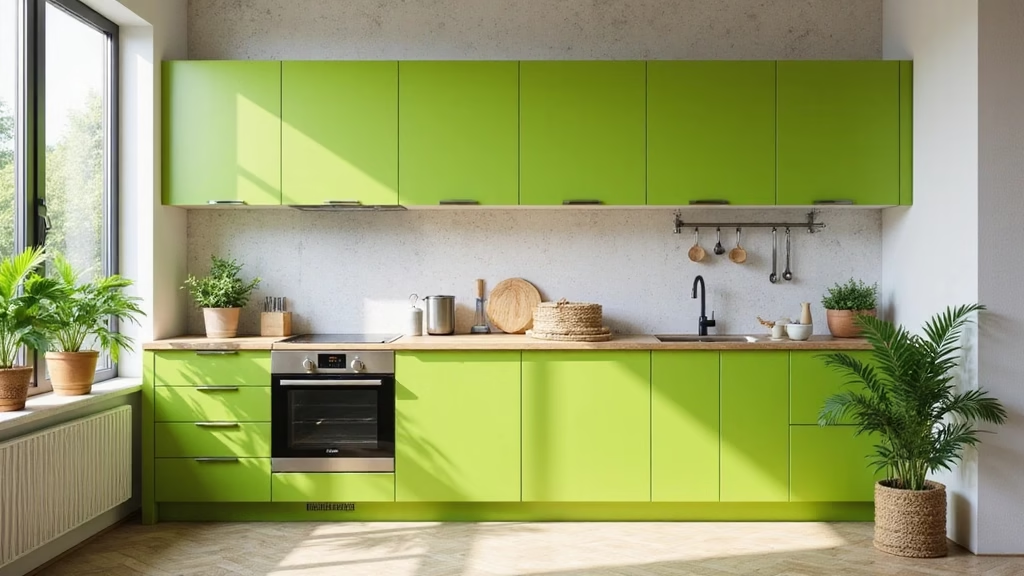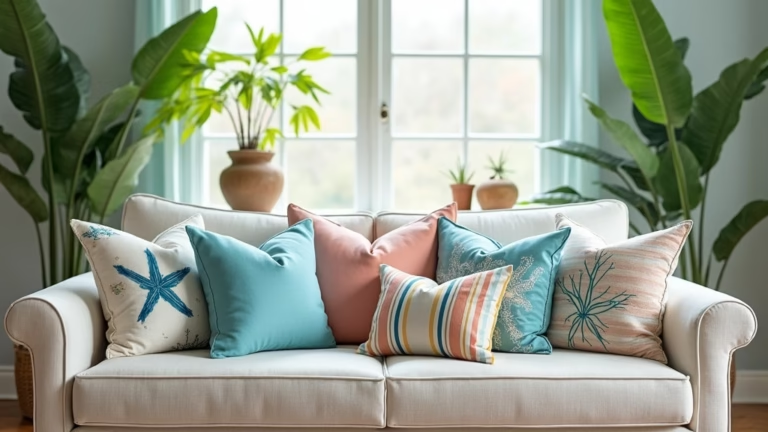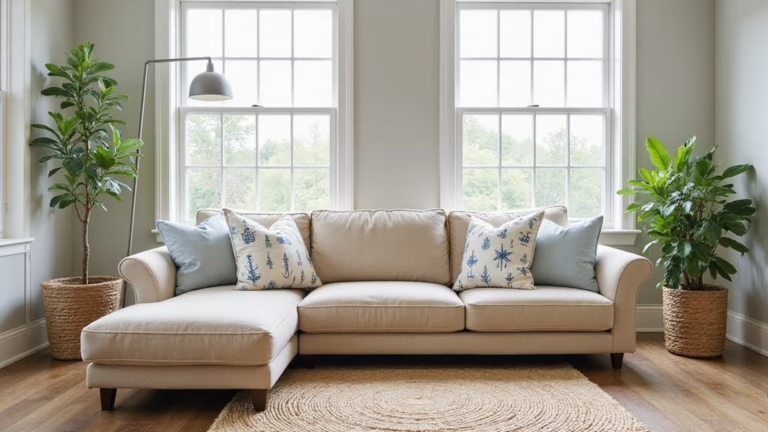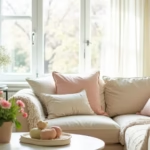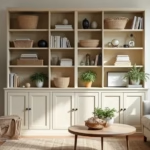Lime green kitchens offer vibrant energy while maintaining sophisticated design. This bold hue balances freshness with timeless appeal when strategically implemented. Discover how to integrate this lively color through elevated design principles that create striking yet livable spaces. These professional techniques transform kitchens into expressive yet functional environments.
1. Strategic Cabinet Implementation

Maximize impact through intentional cabinet design:
– Zoned application: Limit color to island or upper cabinets
– Professional finishes- Proportional balance: 30-40% color saturation in medium-sized kitchens
– Hardware selection: Brushed brass for warmth, matte black for contrast
This approach creates focal points without overwhelming.
2. Neutral Backdrop Formulation
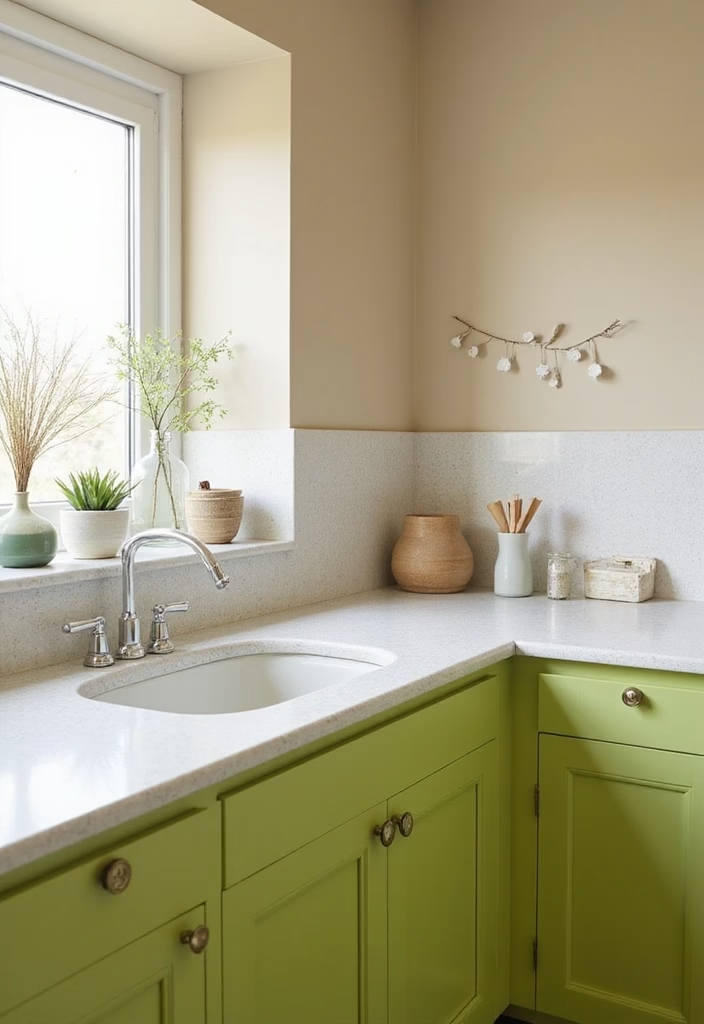
Create harmonious foundations with these pairings:
– Warm neutrals: Oatmeal walls with lime accents
– Cool bases: Gray-veined marble countertops
– Textured elements: Linen-look window treatments
– Wood integration: Light oak flooring for natural balance
These backgrounds allow the color to shine while grounding the space.
3. Elevated Accessory Curation
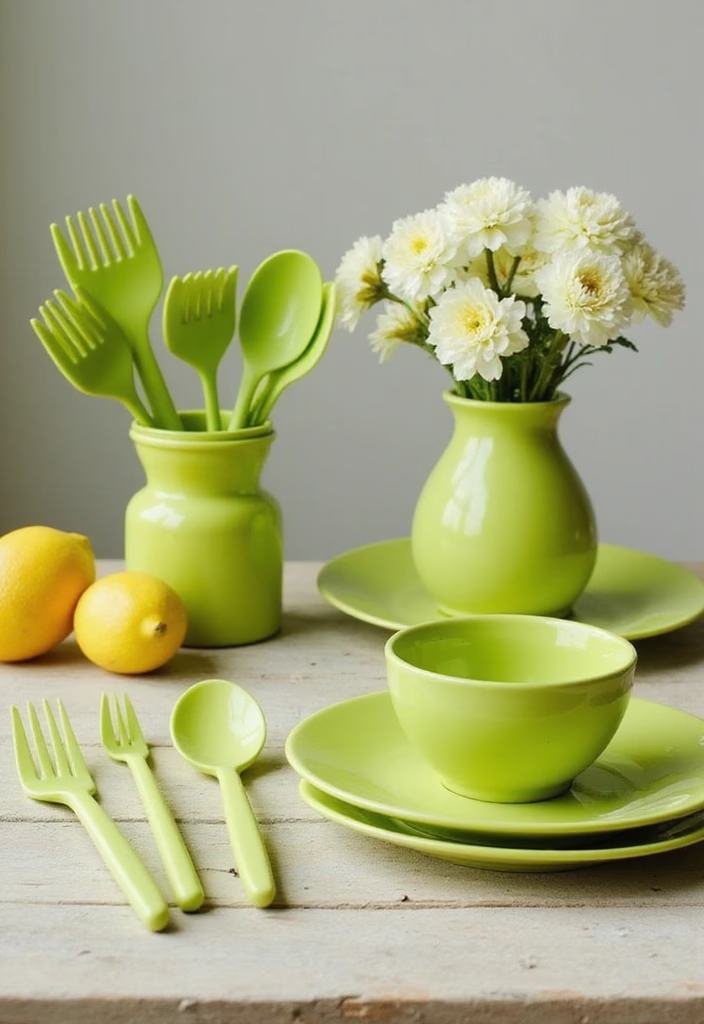
Refine accents with these principles:
– Metallic layering: Combine 2-3 complementary finishes
– Botanical elements: Variegated foliage that echoes the hue
– Artisanal pieces: Hand-thrown ceramic canisters
– Monochromatic accents: Chartreuse glassware on open shelving
Limit accessories to 5-7 intentional pieces for curated sophistication.
4. Architectural Lighting Integration
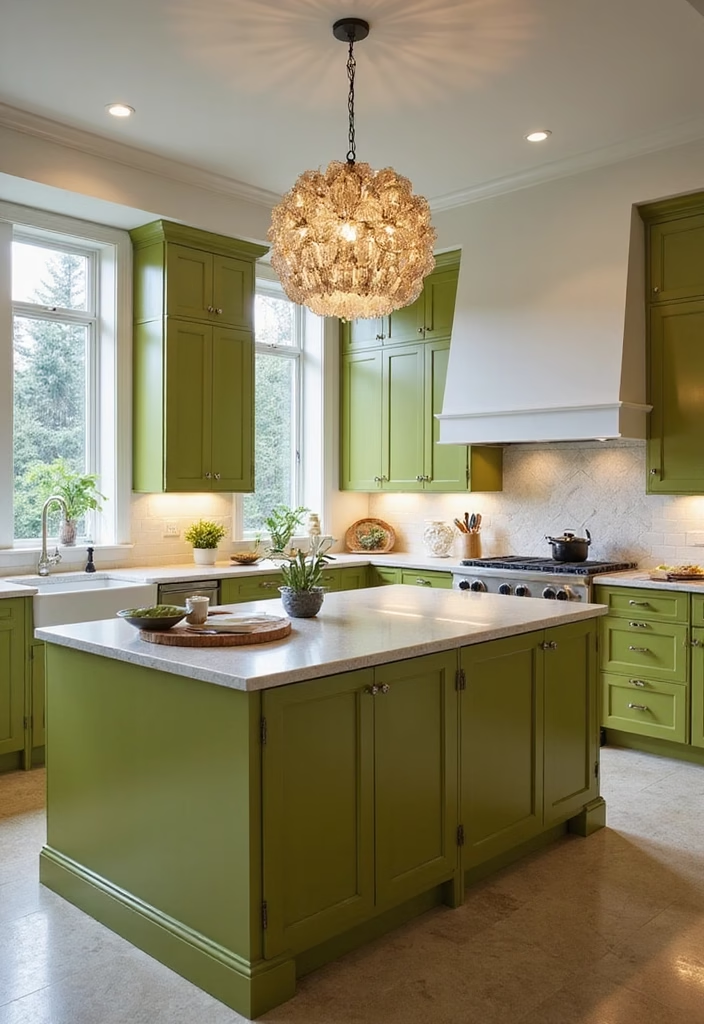
Illuminate strategically with this layered approach:
– Task lighting: 3000K LED strips under cabinets
– Ambient glow: Recessed ceiling fixtures with dimmers
– Statement pendants: Geometric shapes above islands
– Natural enhancement: Unobstructed window placement
Proper lighting intensifies the color while ensuring functionality.
5. Style Fusion Techniques
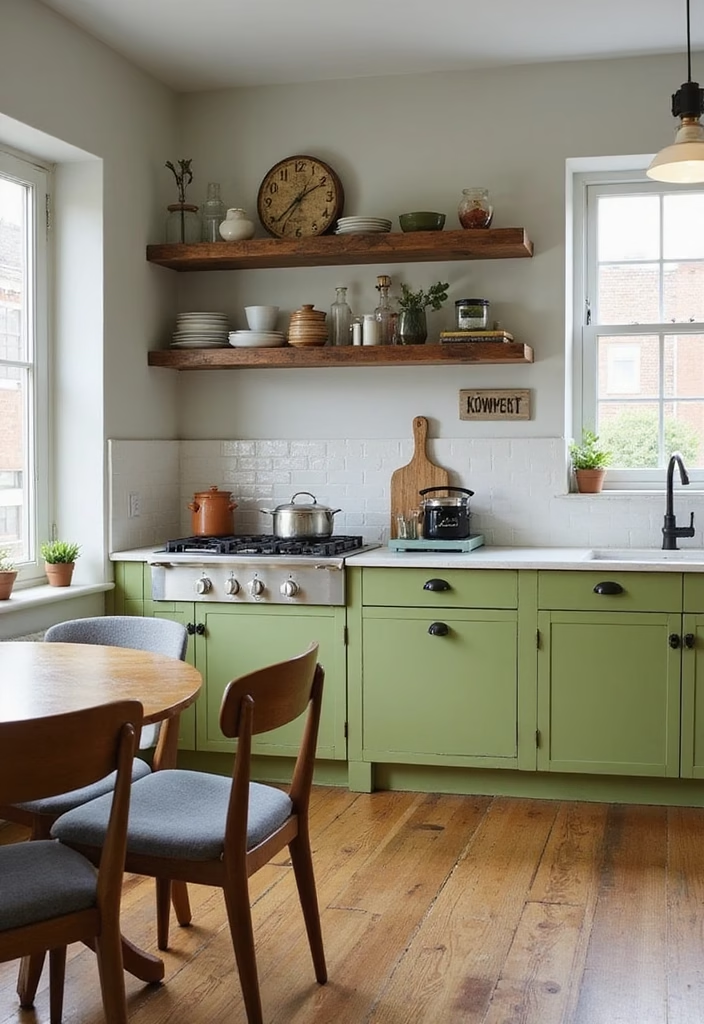
Blend aesthetics seamlessly:
– Modern foundation: Clean-lined cabinetry
– Organic textures: Live-edge floating shelves
– Vintage touches: Reclaimed bar stools
– Global accents
Maintain 70% dominant style with 30% contrasting elements.
6. Sustainable Material Selection
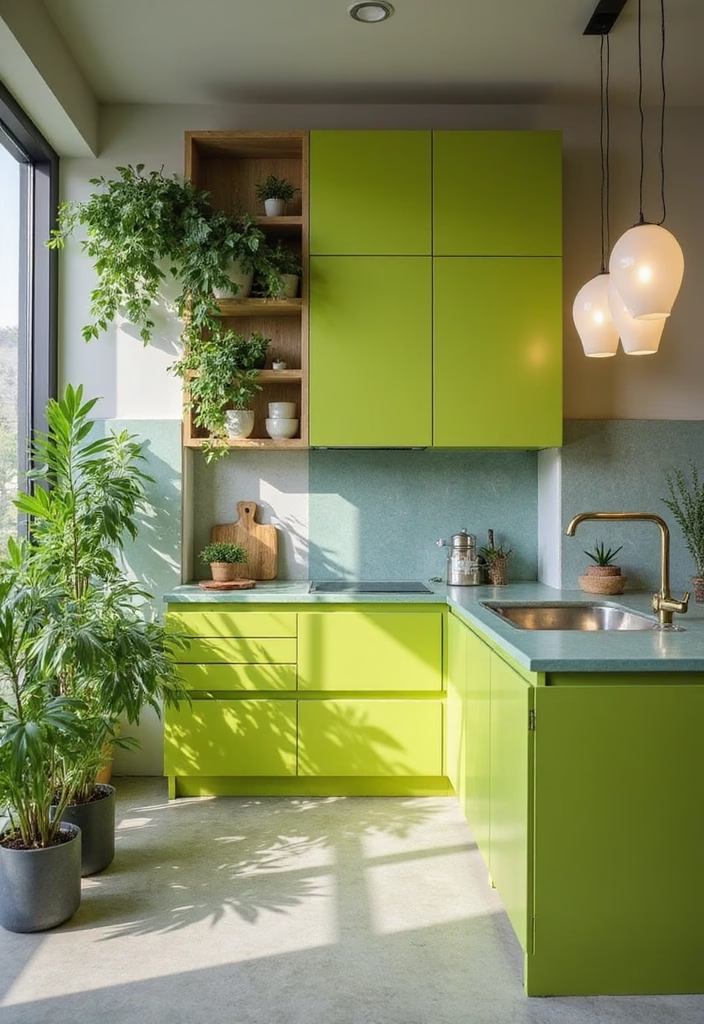
Implement eco-conscious choices:
– Low-VOC paints: Greens with ≤50g/L VOC content
– Reclaimed wood: FSC-certified floating shelves
– Recycled surfaces: Glass composite countertops
– Energy-efficient appliances: ENERGY STAR certified models
These options reduce environmental impact while maintaining style.
7. Tactile Dimension Development
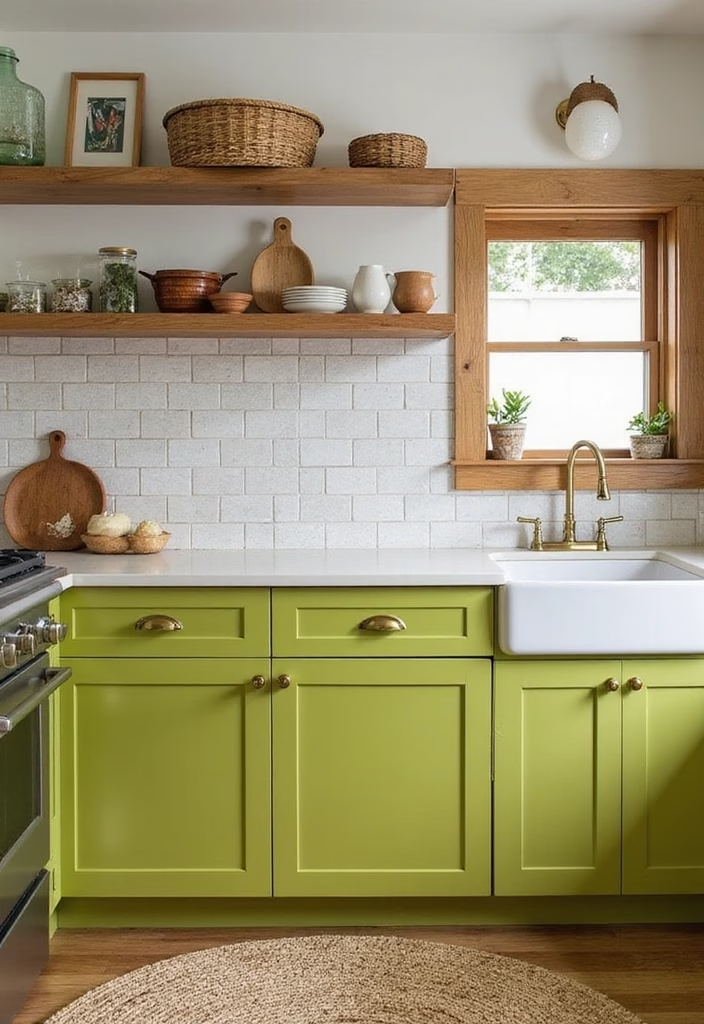
Create sensory interest through texture:
– Backsplash variation: Handmade zellige tile
– Counter contrast: Honed vs polished stone surfaces
– Soft elements: Woven roman shades
– Matte finishes: Suede-look cabinet paint
Balance 60% smooth surfaces with 40% textured elements.
8. Efficient Layout Principles

Optimize workflow with these guidelines:
– Work triangle: 4-9ft between sink, stove, refrigerator
– Prep zones: 36″ uninterrupted counter space
– Storage solutions: Custom pull-out organizers
– Traffic flow: 42″ clearance in walkways
These standards ensure beauty doesn’t compromise utility.
9. Seasonal Transition Strategy

Refresh your space with subtle seasonal shifts:
– Textile rotation: Linen in summer, velvet in winter
– Botanical updates: Seasonal cuttings in simple vessels
– Color accenting-Light adjustment: Warmer bulbs in cooler months
Limit changes to 3-4 elements for effortless transitions.
10. Intimate Space Creation
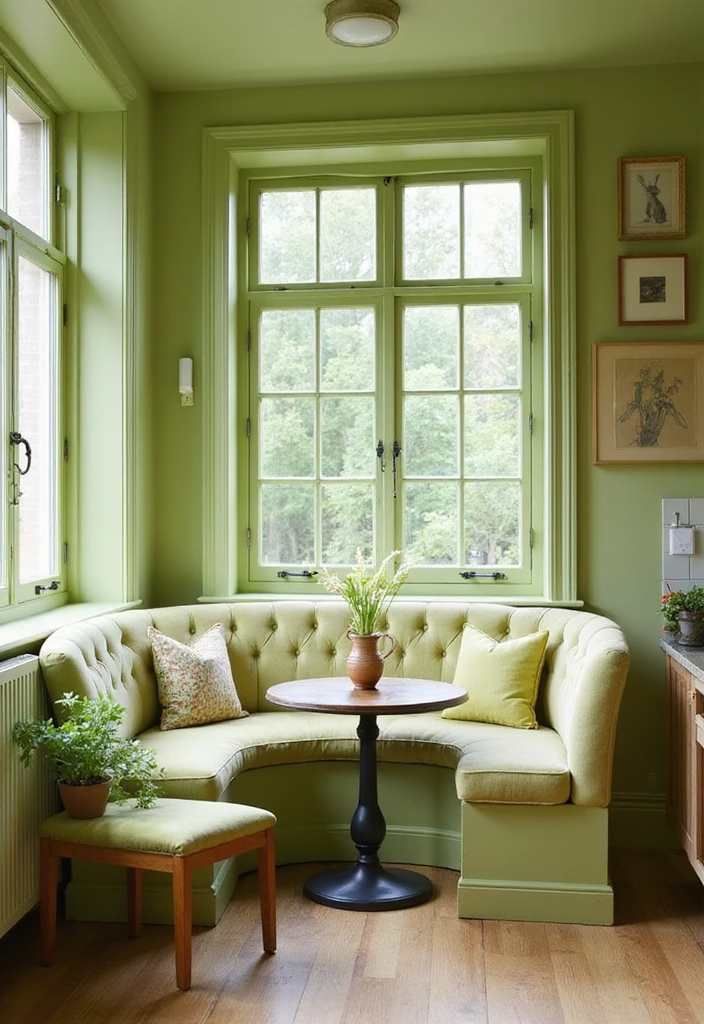
Design cozy zones within the kitchen:
– Banquette seating: Custom upholstered built-ins
– Task lighting: Adjustable swing-arm lamps
– Personal display: Rotating art gallery ledge
– Textural warmth: Sheepskin throws on seating
These elements create inviting spaces for connection.
11. Personalization Through Design
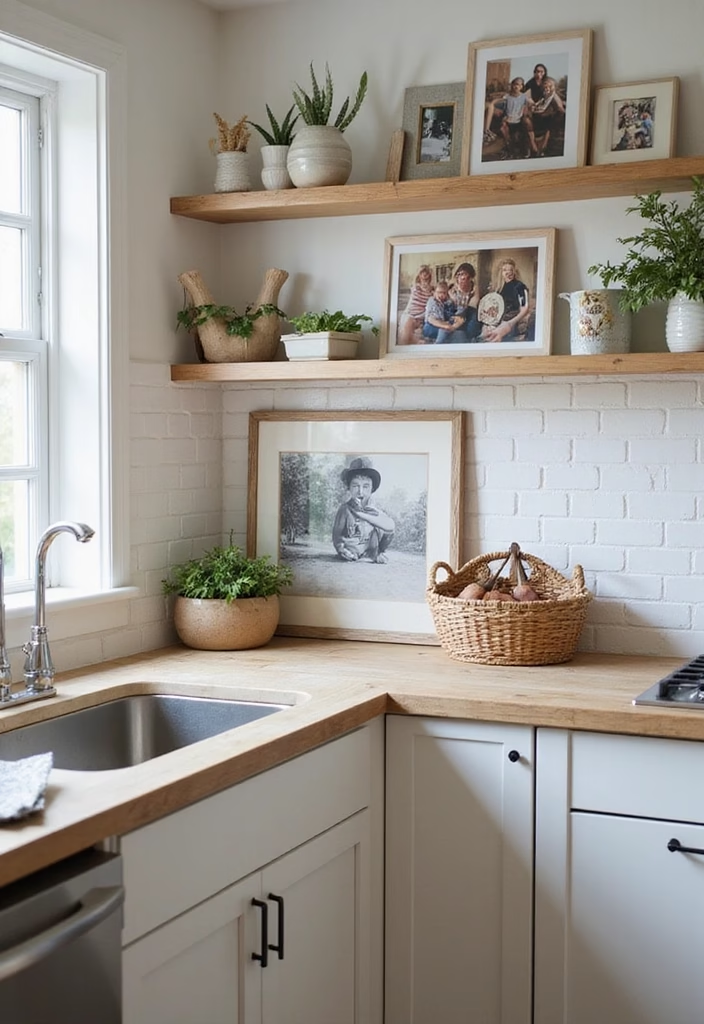
Incorporate meaningful elements:
– Heritage pieces: Displayed heirloom cookware
– Custom art: Local artist commission
– Travel mementos: Ceramics from meaningful journeys
– Functional collections: Vintage glassware rotation
Limit personal items to curated groupings for sophisticated expression.
12. Integrated Smart Technology
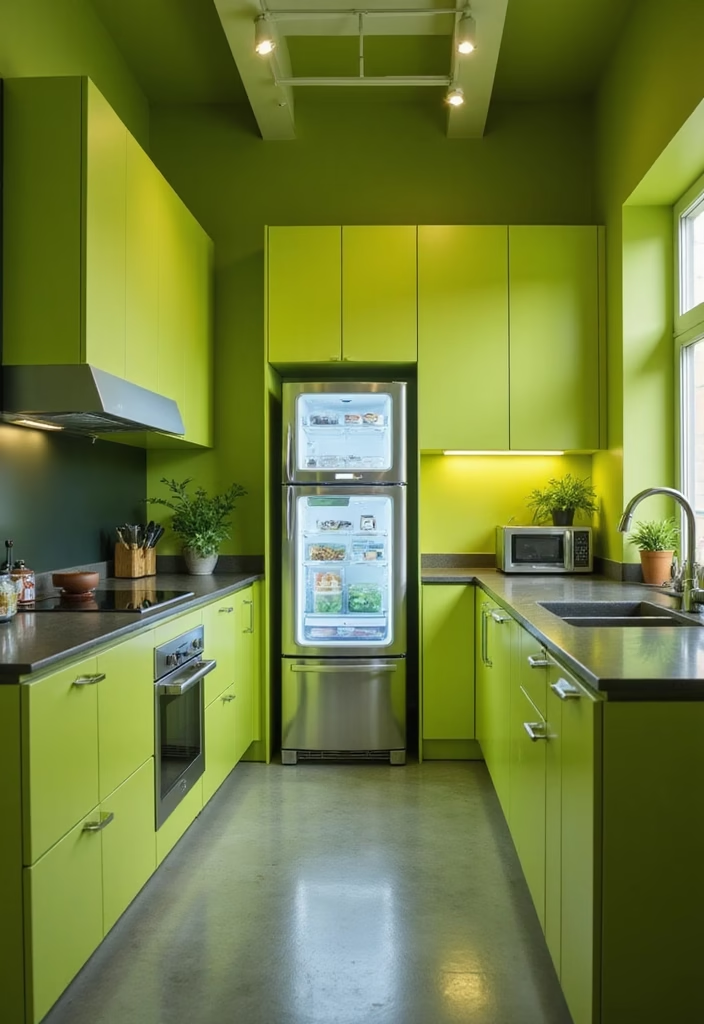
Seamlessly incorporate technology:
– Hidden charging: Drawer-integrated stations
– Voice control: Discreet microphones in lighting
– Appliance integration: Wi-Fi enabled refrigeration
– Ambient systems: Circadian rhythm lighting
These features enhance functionality without visual clutter.
13. Storage Display Strategies
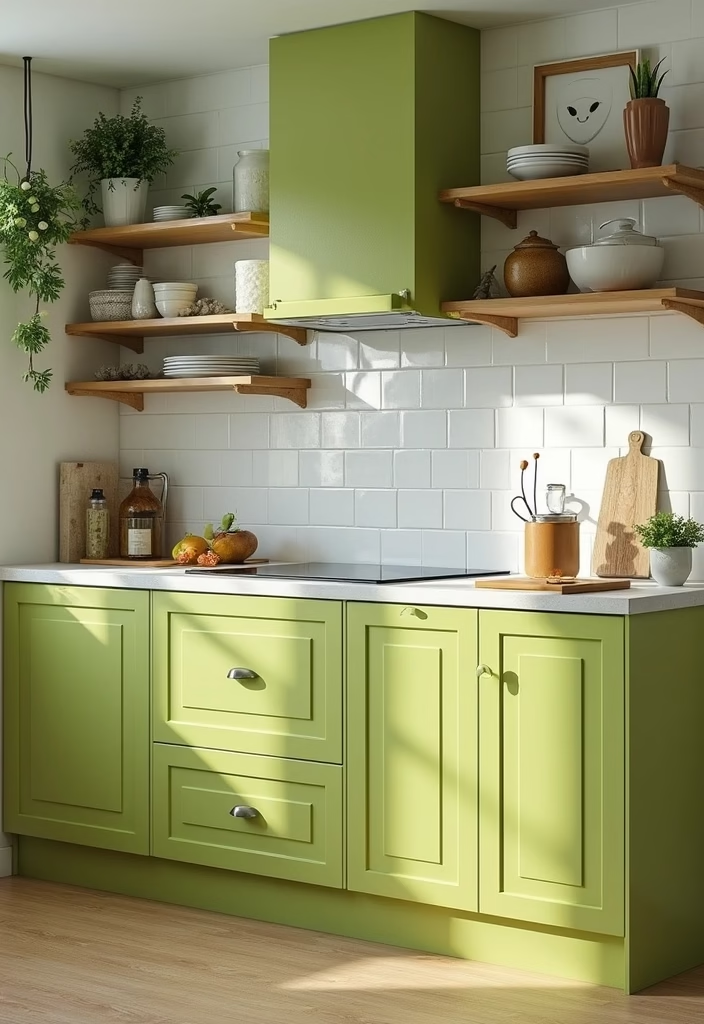
Balance open and closed storage:
– Curated displays: 30% open shelving for beautiful items
– Concealed storage: 70% cabinets for functional pieces
– Transitional elements: Glass-front upper cabinets
– Zoned organization: Task-specific storage areas
This ratio maintains visual interest while reducing clutter.
14. Vintage Integration Techniques
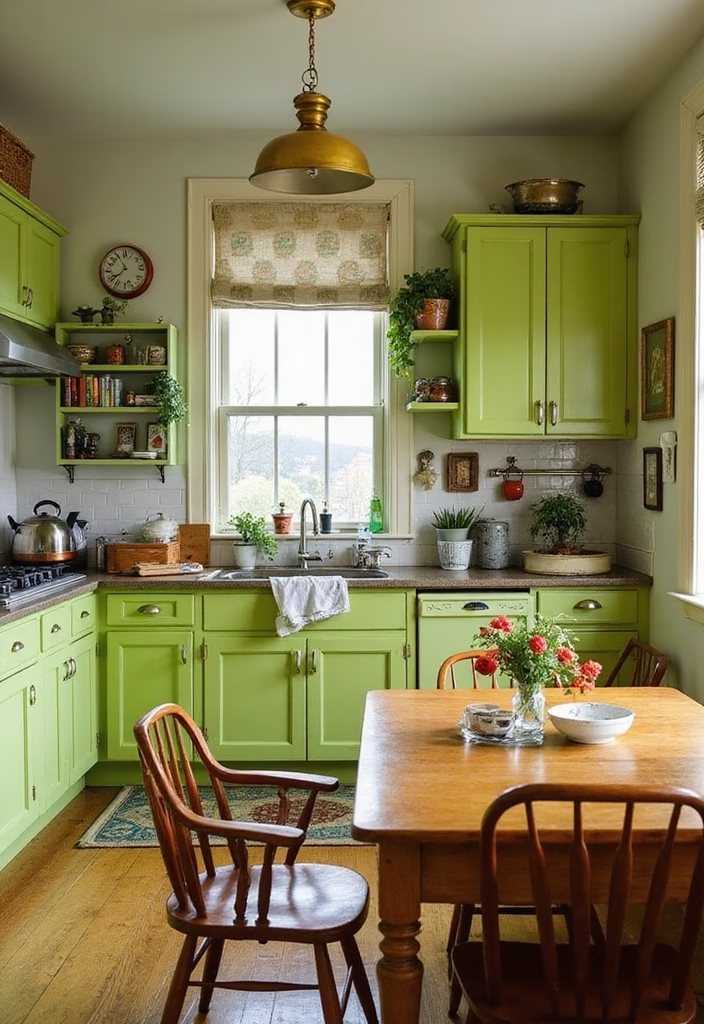
Incorporate heritage pieces thoughtfully:
– Statement lighting: Restored industrial pendants
– Functional antiques: Repurposed pastry table as island
– Authentic reproductions: New hardware with vintage patina
– Contrast placement: Single antique piece among modern elements
This approach adds character without nostalgia overload.
15. Indoor-Outdoor Connection
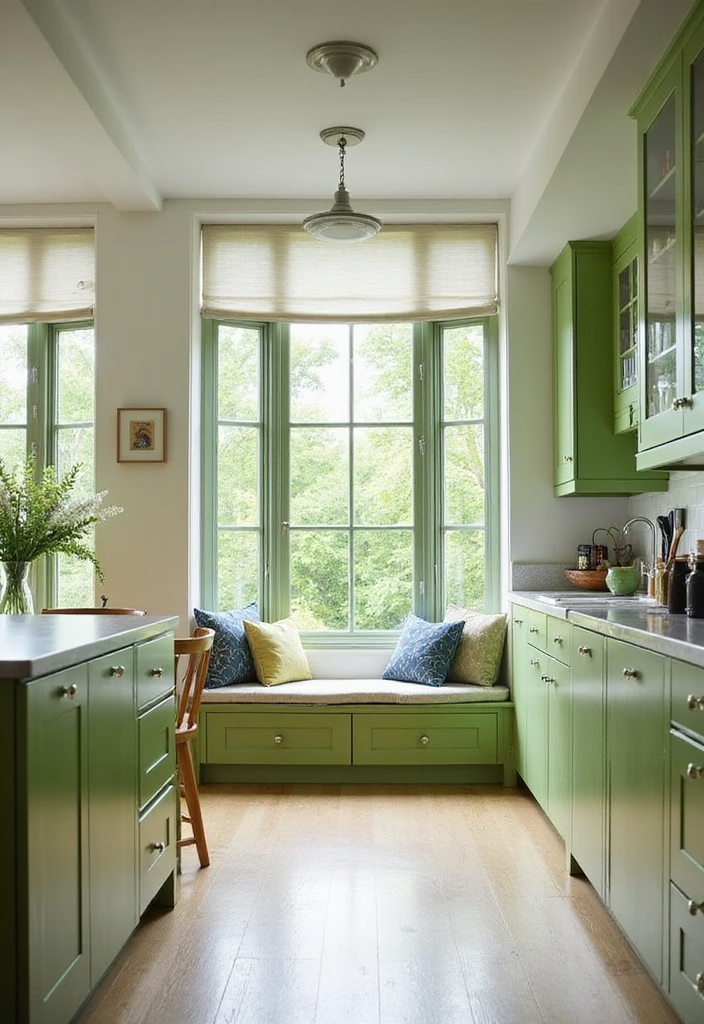
Blur boundaries with these techniques:
– Material continuity: Matching interior/exterior flooring
– Sightline planning: Window placement framing garden views
– Transitional spaces: Matching countertop materials on patio
– Botanical connections: Potted herbs echoing exterior plantings
These elements expand the kitchen’s perceived space.
Conclusion: Balanced Vibrancy

Lime green kitchens achieve their full potential through strategic design implementation. By balancing vibrancy with restraint, personal expression with timeless principles, these spaces become both visually striking and functionally exceptional. The result is a kitchen that energizes while providing enduring sophistication – a true centerpiece for modern living.

